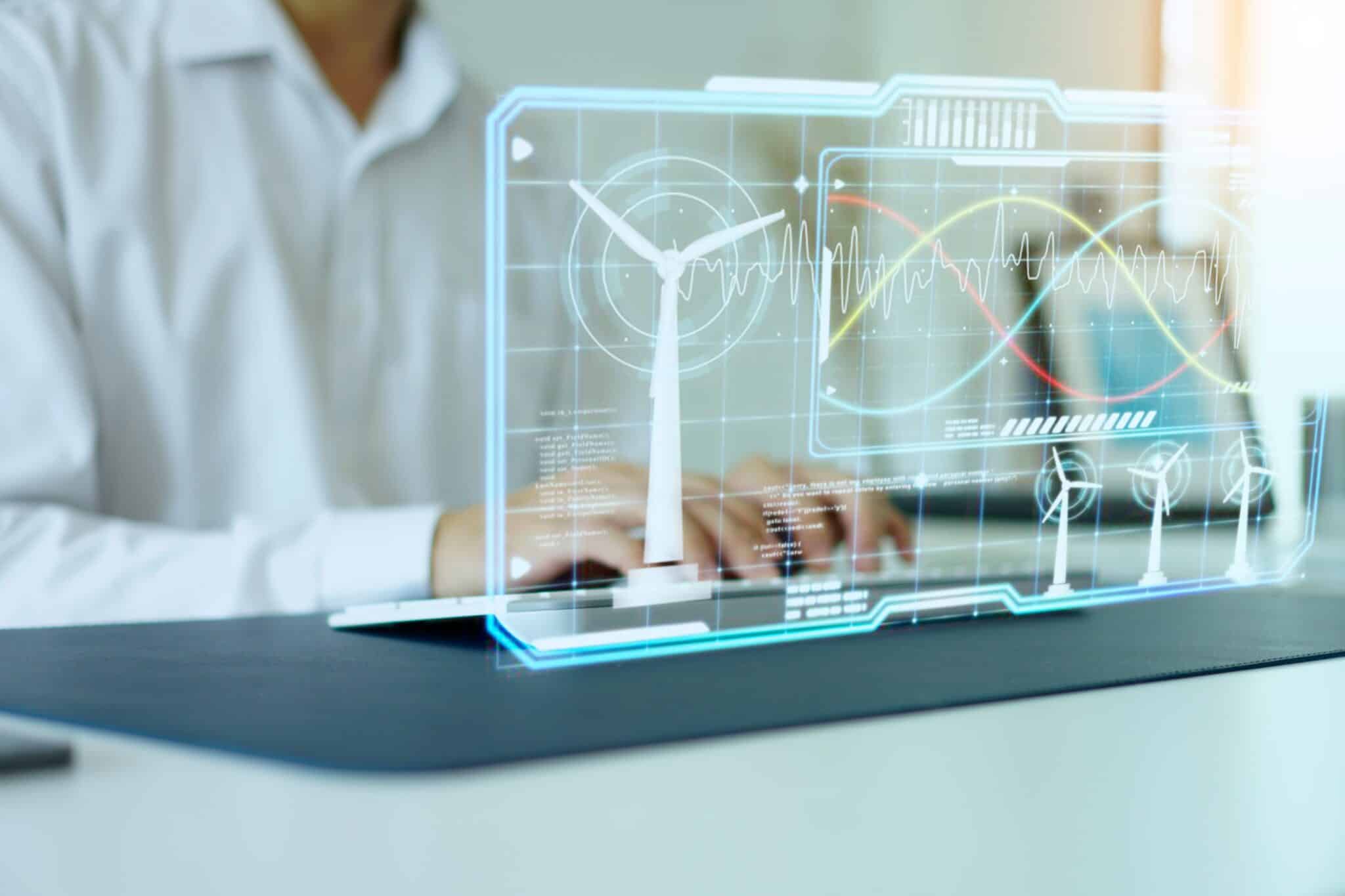Renewable Energy and its Impact on the Future of AI

Artificial intelligence (AI) is transforming diverse sectors, from manufacturing, healthcare to agriculture. However, this technological advancement is not without challenges, especially in terms of sustainability by the business community. As AI becomes more ubiquitous, its energy demand is also increasing and putting tremendous pressure on electric grids throughout Texas and the world. The combination of AI and renewable energy is presented as a promising solution to address these challenges.
The Energy Demand of AI
The development and deployment of AI systems requires a significant amount of energy, particularly in the training of machine learning models. AI systems, especially those based on machine learning (ML) and deep learning (DL), are highly energy-intensive, primarily because of the large computational resources they require. In essence, training AI models are energy-intensive because it involves billions of operations over extended periods, requiring powerful hardware and infrastructure. This high consumption raises the question of how to make AI more sustainable.
The Role of Renewable Energy
Renewable energy, such as solar and wind, offers a viable alternative to meet the growing energy demand of AI. These sources are not only cleaner but are also increasingly cost-competitive. Integrating renewable technologies into data centers can significantly reduce the carbon footprint of AI operations.
- Energy Efficiency:
Advances in AI technology can also improve the energy efficiency of data centers. AI systems can optimize energy usage, dynamically adjusting load and reducing consumption during periods of low activity. Additionally, artificial intelligence can predict energy demand and help balance the load between renewable and conventional sources.
- Energy Storage:
Another crucial aspect is energy storage. Solar and wind energy are intermittent, meaning their output does not always match demand. Storage solutions, such as advanced batteries, make it possible to store energy for use during times of high demand. Here, AI can play a critical role by managing these storage systems, optimizing energy distribution in real time.
- Waste Reduction:
AI can also help reduce waste generated by energy infrastructure. Through data analysis and predictive modeling, systems can anticipate necessary maintenance and optimize production, resulting in less waste and more efficient resource management.
Challenges and Opportunities
Despite the benefits of AI, integrating renewable energy into AI faces several challenges. Current energy infrastructure in many countries still relies heavily on fossil energy sources, limiting the transition to a more sustainable model. In addition, investment in renewable technologies and modernization of the power grid requires significant commitment at both Federal. State and Private levels.
However, the potential is immense. Policies that encourage renewable energy in the technology sector can reduce the carbon footprint and stimulate innovation in AI. For example, companies that adopt sustainable practices can gain competitive advantages in an increasingly environmentally conscious market, especially with the advent of investors now using it as a criterial for investments and responsible corporate governance.
Success Stories
There are already examples of companies that have begun to combine AI and renewable energy with promising results. One is National Grid (UK): The utility uses AI-driven tools to enhance its management of electricity distribution. With a focus on integrating renewables into its infrastructure, National Grid applies machine learning to optimize the use of battery storage. AI models predict when to store excess energy generated by solar and wind farms and release it during peak demand periods. This strategy not only stabilizes the grid but also reduces reliance on fossil fuels, making their energy mix cleaner and more reliable. Obviously, there are others like Google, etc.
The Future of AI and Sustainable Energy
As the world moves towards a more sustainable future, the relationship between AI and renewable energy will become increasingly relevant. Combining these two areas can not only help mitigate the environmental impact of AI but can also accelerate the transition to a more sustainable energy model, while improving efficiency and effectiveness.
In conclusion, renewable energy and artificial intelligence have the potential to revolutionize the way we manage energy.
To learn more about this subject read:


